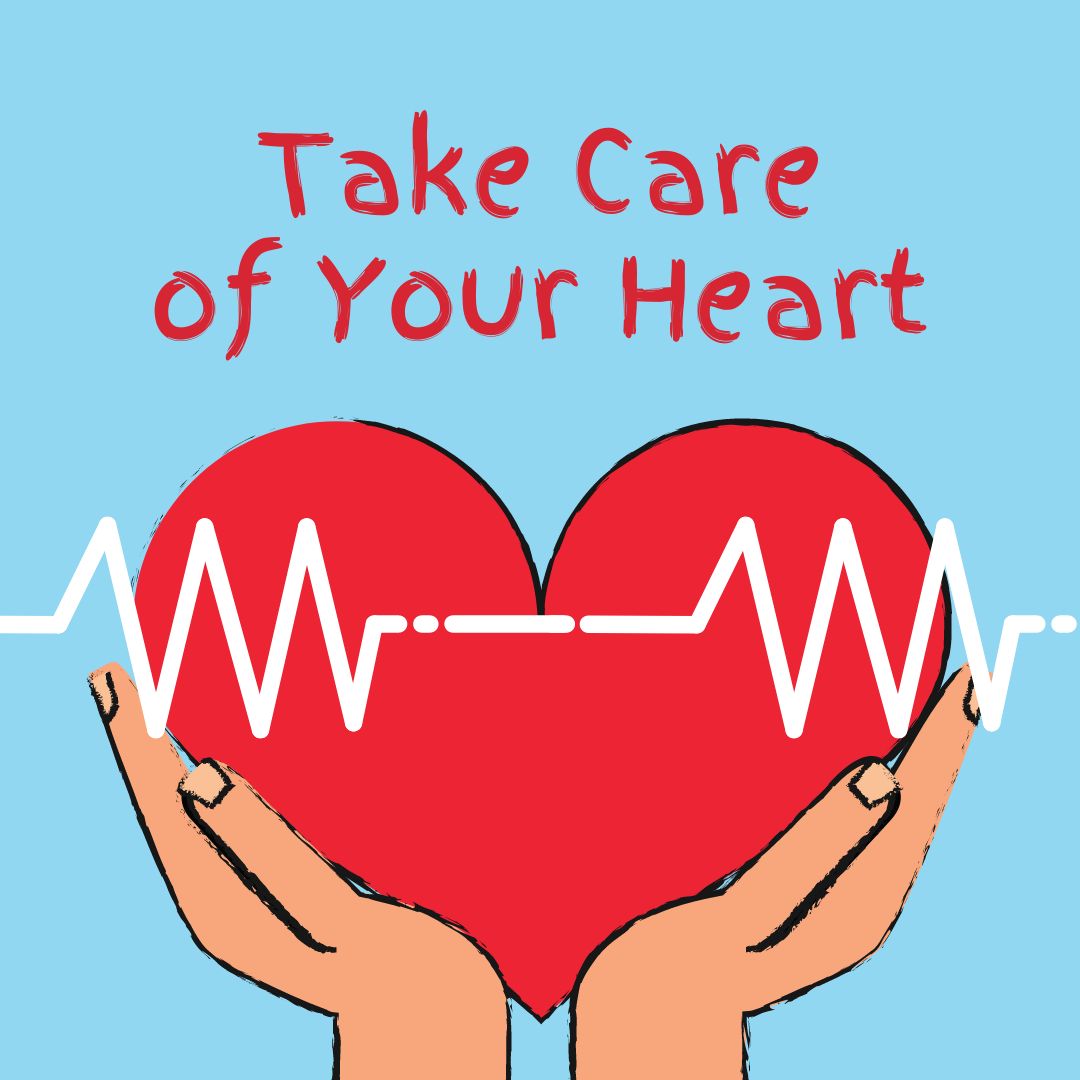
Heart disease Risk in Women during Menopause.💔👩⚕️
Menopause is a significant time in a woman’s life that can impact various aspects of health, including an increased risk of heart disease. The decline in estrogen levels during menopause is a key factor contributing to this heightened risk. Here are some important points to consider:
What’s Role of Estrogen🌸
Estrogen has a protective effect on the cardiovascular system. It helps maintain healthy blood vessels, promotes good cholesterol (HDL) levels, and reduces bad cholesterol (LDL) levels. With the decline in estrogen during menopause, these protective effects are diminished.
Cholesterol Levels🩸
Post-menopausal women often experience unfavorable changes in their cholesterol profiles, including increased LDL (bad cholesterol) and decreased HDL (good cholesterol). This shift contributes to the buildup of plaque in the arteries, leading to atherosclerosis.
Blood Pressure📈
Blood pressure often increases with age, and the onset of menopause can exacerbate this rise. Higher blood pressure is a significant risk factor for heart disease and stroke.
Weight Gain and Metabolism⚖️
Menopause is associated with changes in metabolism and a tendency to gain weight, particularly around the abdomen. Abdominal fat is particularly concerning because it is linked to a higher risk of heart disease.
Waist Circumference📏
The circumference of your waist is an important indicator of abdominal fat. A waist measurement of more than 35 inches (88 cm) in women is associated with a higher risk of heart disease and other health issues. Monitoring waist circumference can be a useful tool in assessing and managing heart disease risk.
Types of Fat: Visceral vs. Subcutaneous 🥑
- Visceral Fat: This is the fat that surrounds internal organs. It is more metabolically active and associated with higher risks of heart disease, type 2 diabetes, and other health problems. Visceral fat is considered more dangerous than subcutaneous fat because it can trigger inflammatory pathways and contribute to insulin resistance.
- Subcutaneous Fat: This is the fat that lies just under the skin. While it can contribute to overall body fat, it is not as strongly associated with the same health risks as visceral fat. Subcutaneous fat is generally less harmful but can still affect overall health and should be managed.
Impact of Visceral Fat on Health 🏥
Visceral fat can:
- Raise your blood cholesterol: Higher levels of visceral fat can lead to an increase in LDL (bad) cholesterol and a decrease in HDL (good) cholesterol.
- Increase your blood pressure: Visceral fat can contribute to higher blood pressure, a significant risk factor for heart disease.
- Increase your risk of developing Type 2 diabetes: Visceral fat makes it harder for your body to use insulin effectively, leading to insulin resistance and potentially type 2 diabetes.
All these risk factors are closely linked with heart and circulatory diseases.
Body Shape and Risk 🍎🍐
People who are “apple” shaped (carry excess weight around their middle) are at higher risk than those who are “pear” shaped (carry weight around their hips, thighs, and bottom) because the fat sits around their organs.
Insulin Resistance and Diabetes 🩺
Carrying weight around your middle can make it harder for your body to use a hormone called insulin, which controls your blood glucose (sugar) levels. This can lead to type 2 diabetes. Having high levels of glucose in your bloodstream damages your arteries and increases your risk of heart and circulatory diseases The American diet, characterized by high salt, sugar, and unhealthy fats, is associated with various health problems, including obesity and heart disease. Consuming sugary 🥤 beverages and snacks 🍩🍪 further exacerbates the risk of weight gain and type 2 diabetes.
Lifestyle Factors 🏃♀️🥗🚭
Lifestyle choices play a crucial role in managing heart disease risk. Factors such as a balanced diet, regular physical activity, not smoking, and limiting alcohol consumption are vital for heart health.
Hormone Replacement Therapy (HRT) 💊
Hormone Replacement Therapy can help alleviate menopausal symptoms and may have some benefits for heart health if started around the time of menopause. However, it also carries risks, and its use should be carefully evaluated by a healthcare provider.
Regular Health Screenings 🩺
Regular check-ups and screenings are essential for monitoring heart health. This includes blood pressure measurements, cholesterol levels, blood sugar levels, and other relevant tests.
Stress Management 🧘♀️
Menopause can be a stressful time due to various physical and emotional changes. Chronic stress can negatively impact heart health, so finding effective ways to manage stress is important.
Tips for Reducing Heart Disease Risk During Menopause:
- Healthy Diet: Focus on a diet rich in fruits, vegetables, whole grains, lean proteins, and healthy fats. Reduce intake of saturated fats, trans fats, and refined sugars. 🥗🍎
- Exercise: Aim for at least 150 minutes of moderate-intensity exercise per week. Include both aerobic exercises and strength training. 🏋️♀️🚴♀️
- Quit Smoking: Smoking cessation is crucial for heart health. 🚭
- Limit Alcohol: Keep alcohol consumption to moderate levels. 🍷
- Maintain a Healthy Weight: Work towards maintaining a healthy weight through diet and exercise. ⚖️
- Manage Stress: Engage in stress-reducing activities such as yoga, meditation, or hobbies you enjoy. 🧘♀️🎨
- Regular Check-ups: Keep up with regular medical appointments to monitor and manage risk factors. 🩺
By maintaining a healthy lifestyle, monitoring waist circumference, and seeking regular medical advice, women can help reduce the accumulation of visceral fat and lower their risk of heart disease during and after menopause. Consulting with a healthcare provider can help tailor a plan to manage individual risk factors and maintain heart health during this critical stage of life.
Support from Best Weight On You 🌱
At Best Weight On You, we recognize the impact of heart disease during menopause. Therefore, through the plan 📋, efforts are made to promote health.
Coaching 🧑🏫 you through your menopause change addresses the risk of heart disease and involves a comprehensive approach, 📚 including education, 🧘♀️ lifestyle changes, to create an environment that supports a healthy heart. 🌱🏋️♂️
💕As your Health Coach I will help you TAKE CHARGE & FOCUS on your health. 🕊️Together, we can see both your good intentions and healthy lifestyle, take better shape.
Now is a good time for you to TAKE CHARGE!
Contact me for your first step to a new you.
Use “My Way to Reach” Me section below set up your FREE Consultation Today!
Interested in:
- Untravibe, a product that combines CBD, CBG, and CBC for enhanced benefits?
- learning more about a diet?
Want to talk about both?
Want more information?
Want to check for sales?
Contact Me!
Ways to reach me!
 If you are viewing this on a phone click on the number. (321) 414-5654
If you are viewing this on a phone click on the number. (321) 414-5654
If you are using a browser to view this you will need to enter the numbers manually on your phone.
Email me Melitat@bestweightonyou.com
Create an appointment by clicking >> “make an appointment“
Or just send me a quick message!
